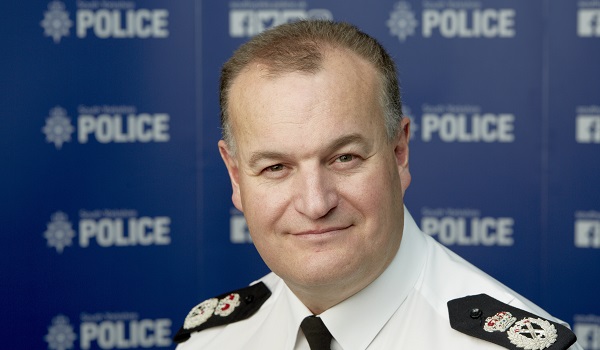BBC considers appeal after judgment shifts 'ability of journalists to report on police investigations'
A High Court judge has praised the “credibility and honesty” of South Yorkshire Police officers after finding in favour of Sir Cliff Richard in his legal battle with the BBC.
Mr Justice Mann awarded Sir Cliff an initial £210,000 in damages on Wednesday (July 18) over the BBC’s reporting of a 2014 South Yorkshire Police raid on his home.
The entertainer was never arrested or charged in relation to the force’s investigation of historical child sex allegations, but coverage of the search was broadcast live on TV.
The court ruled the BBC had committed a serious and “sensationalist” invasion of Sir Cliff’s privacy, rejecting its argument that reporting on the raid was justified under freedom of expression rights.
The BBC claims its journalists “acted in good faith” and is considering an appeal.
Chief officers are now considering the implications of the ruling.
South Yorkshire Police Chief Constable Stephen Watson said: “I note Mr Justice Mann’s detailed and comprehensive judgment handed down today, Wednesday 18 July 2018. I fully accept his findings.
“I particularly welcome Mr Justice Mann’s findings that all South Yorkshire Police officers and staff were found to have acted entirely honestly and were credible and reliable witnesses.
“At a very early stage of these proceedings, we accepted and apologised to Sir Cliff Richard for the mistakes we made in our attempts to protect the integrity of the police investigation and the rights of the complainant, balanced against Sir Cliff Richard’s privacy rights.
“I would like to take this opportunity to again offer our sincere apologies for the distress Sir Cliff Richard has suffered.”
In 2014, the BBC approached South Yorkshire Police with information about Sir Cliff it claimed to have received from a confidential source in the Operation Yewtree investigation.
A reporter had learned the force was investigating Sir Cliff over allegations of historic sexual abuse against a child, and these details were used to gain its cooperation in covering the search on his home.
The news story was broadcast as an exclusive by the BBC in August that year.
Sir Cliff was never arrested as part of the investigation and in 2016 it was announced that he would not face charges.
He later launched legal action against the BBC and South Yorkshire Police, accusing the two organisations of misusing private information and breaking data protection laws.
South Yorkshire Police apologised to Sir Cliff and a £400,000 settlement was agreed last year.
The force insisted it had been pressured into helping the BBC due to the implicit threat that it would publish a story whether it cooperated or not.
However, the BBC refused to accept his allegations as it claimed it had a right to freedom of expression.
Mr Justice Mann found Sir Cliff had a legitimate expectation of a right to privacy which the BBC’s claim did not outweigh.
He refused to accept allegations by the BBC that South Yorkshire Police officers conspired in their preparation of notes of meetings after the event to protect their positions.
He also declined the broadcaster’s request that South Yorkshire Police should pay 100 per cent of the damages as he found it was “the more potent causer of the harm”.
Sir Cliff was awarded £190,000 in damages and an additional £20,000 in aggravated damages as the BBC submitted its coverage of the incident for an award.
The BBC was ordered to pay the entire £20,000 sum and 65 per cent of the £190,000, with South Yorkshire Police picking up the remaining 65 per cent.
Further special damages will be quantified at a later trial.
The £190,000 award in basic general damages marks the first time compensation for damage to reputation has been made in a privacy claim.
Chief Constable Gareth Morgan, the national policing lead for media relations, said: “Today’s judgment in the Sir Cliff Richard case against the BBC is an important ruling which could have significant implications for police and the media.
“The College of Policing, as the professional body for the police, has issued clear media relations guidance for forces in England and Wales which says that police will not name those arrested, or suspected of a crime, save in exceptional circumstances where there is a legitimate policing purpose to do so.
“In light of this judgment, the National Police Chiefs’ Council and the College of Policing will carefully consider the implications this may have.”
BBC director of news Fran Unsworth apologised for the distress Sir Cliff has experienced and said things would have been done differently with hindsight.
However, she added: “This judgment creates new case law and represents a dramatic shift against press freedom and the long-standing ability of journalists to report on police investigations, which in some cases has led to further complainants coming forward.
“This isn’t just about reporting on individuals. It means police investigations, and searches of people’s homes, could go unreported and unscrutinised. It will make it harder to scrutinise the conduct of the police and we fear it will undermine the wider principle of the public’s right to know. It will put decision-making in the hands of the police.
“We don’t believe this is compatible with liberty and press freedoms. For all of these reasons, there is a significant principle at stake. That is why the BBC is looking at an appeal.”


